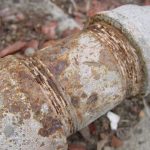Every modern home has a washing machine, and if something goes wrong, it can create a host of problems. Trying to do laundry by hand is a real chore, and lugging your washing load to the local laundromat can be a real drag. If you’ve noticed that your washing machine is struggling to clean your washing load or the floor is flooding with water, there is a problem. Many people simply replace their machines, but there could be an underlying plumbing problem to fix. In this article, we will look at five common washing machine problems that could be caused by your plumbing system.
- There is No Wash Cycle
This is the most common issue that many people experience, the wash cycle on their washing machine simply doesn’t work. Check the power; if the washing machine is turned off, then that is the problem, but if it still doesn’t turn on, check the circuit breaker. Locate the circuit breaker and reset it to see if that corrects the issue. If you’re positive that the lack of power is not the issue, it’s time to look at alternatives. If the washing machine hasn’t failed, there are a couple of possible plumbing related problems. The first is a clog in the water supply line that could be preventing sufficient water from getting into your washing machine. The second problem could be the water valve. If it has failed or it is clogged, it will affect the normal operation of your machine.
- The Drum Will Not Spin Correctly
Obviously, this problem will not affect people that have top loading washing machines because they have a different type of agitator. If you have a front loading machine and the drum will not spin, the problem could be the belt located at the bottom of the drum. This drum belt can fall out of alignment, or in extreme cases, it can break much like a car fan belt. Check the owner’s manual for your washing machine, or if you’ve misplaced it look for a digital copy online. This should give you some useful information on the location of the belt and how to change it. The only tools you typically need are a screwdriver and a new belt to replace the old one if it has snapped. If you’re not confident working on your expensive washing machine, contact your plumber for expert help and advice.
- The Water Will Not Drain
If you open your washer and notice that your laundry is soaked and heavy, it has not gone through the spin cycle. Remove the clothes and take a look at the drum inside. You may notice a puddle of water in the button of the washer drum because there is a drainage problem. Sometimes the washer drainage system is blocked by something that was left in the clothes, including loose change and other items. Disconnect the washer from the drain hose and clear the water out of the drum using towels and a bucket. Take a look in the drain hose and see if you can see any obvious blockages that you can clear by hand. Then reconnect the washer, try a lighter load, and see if the situation has improved. If the problem persists, it’s time to call out a plumber to check the washer drain hose to see if it’s blocked.
- The Washer Cannot Fill or Reach the Desired Temperature
This is often caused by a problem with the water inlet valve is blocked. There are a pair of inlet valves at the rear of your washer to deliver hot and cold water to your machine. These can become clogged with scale deposits that gradually reduce the pipes’ diameter, and eventually, they become blocked. Another possible cause is that modern hot or cold water supply hoses are connected with solenoid valves. These types of inlet valves operate with electro mechanical mechanisms. Any buildup of scale on these components can interrupt the electrical signals that cause them to open or close. A buildup of scale is caused by the mineral content left behind by hard water. So, the obvious solution is to remove hard water from your home with a water softener system. Ask your local certified plumber about water softening systems and how they can protect your water using appliances.
- The Washer is Making a Loud Noise
It is normal to hear some noises from your washer when the machine is filling with water or during the spin cycle. But, if you can hear loud sounds or there are severe vibrations, then there could be a problem with the washer pump. This pump is connected to the drain hose, it’s function is to push the water into and out of the machine. A common problem is smaller items of clothing such as socks that catch in the area between the drum, and this blocks the pump and prevents it from working.
It’s a great idea to thoroughly check your laundry before you start to use the washer. All smaller items of clothing should go in a mesh laundry bag to prevent them from blocking the pump. Check all the pockets for loose change and other items that can damage the washer. This is very important; there are rare cases where loose change has broken the glass door of a front loading washer! Smaller items can also make their way into the drain and clog the drainpipe leading to other problems.
Another common reason for this problem is a lack of washer cleaning. It’s a great idea to clear the filter screen that’s located over the washing machine pump. The material that gathers there can cause draining and noise issues. If you’ve attempted to correct this issue and you’re still experiencing problems call a plumber for expert advice.
Final Thoughts
Many people encounter a washer problem and assume that the washer is to blame. This is particularly true if the washer is an older model, and making rash decisions can waste a lot of money. A washer is a significant investment, and you need to make sure you get the most out of your machine. If you experience any of these five washer problems, follow the advice here, and if you cannot fix the problem, contact a
local certified plumber.
By Giovanni Longo President Flood Brothers Plumbing
Giovanni Longo is a 3rd generation master plumber who has been practicing his craft and trade in the greater Los Angeles area for well over a decade and a half. A plumbing and hydraulics-engineering innovator, Giovanni’s particular world-class expertise focuses on dealing with challenging sewer system designs as well as resolving complex commercial and residential draining issues. As a certified Flood Mitigation expert, he is also well versed in a wide variety of water damage and remediation solution.





